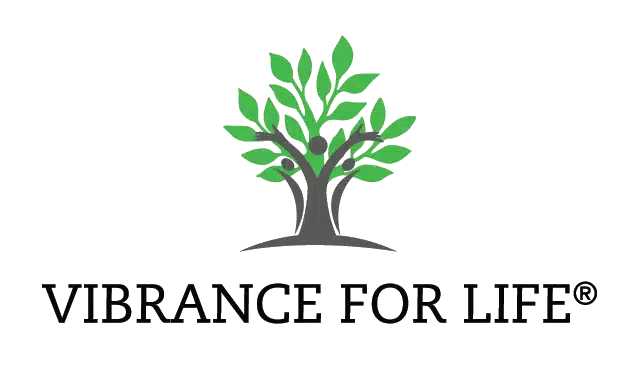Featured
The Top Hormonal Imbalance Symptoms in Women Over 40 (And How to Stop Them)
Does it feel like your body has suddenly developed a mind of its own? You’re not alone. As a woman over 40, I’ve heard this sentiment echoed in my practice countless times, and I completely understand the frustration. One day you’re feeling on top of the world, and the next, you’re wondering why your favorite jeans don’t fit, or why you’re staring at the ceiling at 3 AM despite being exhausted. You may need support and validation that you are not going crazy and that there is hope and help.
Let’s have an honest conversation about what’s really happening in your body and the typical hormonal changes at 40 symptoms you might experience. More importantly, let’s explore how you can take back control.
The Reality of Hormonal Changes
Think of your hormones as an intricate orchestra. When you’re younger, every instrument plays in perfect harmony. But as you approach your 40s, some players start missing their cues. This natural transition can feel anything but natural when you’re experiencing it.
The Most Common Signs You Shouldn’t Ignore
That extra weight around your midsection that appeared seemingly overnight? Those unpredictable mood swings that have your family, friends and coworkers walking on eggshells? They’re not in your head, and they’re not character flaws.They’re your body sending you important messages about symptoms of hormonal changes in females after 40.
The most common symptoms1–3 my patients report include:
- Unexplained weight gain, especially around the abdomen, hips, thighs and breasts
- Disrupted sleep patterns, even when you’re tired
- Mood changes that feel out of character, anxiety, irritability, snapping at people
- Painful sex and frequent urinary tract infections
- Brain fog and difficulty concentrating
- Unexplained fatigue
- Hot flashes or night sweats
- Loss of libido
- Dry skin and thinning hair
- Joint pain
Sheilah, one of my patients, recently told me, “I felt like I was losing myself. I’ve always been energetic and positive, but suddenly I couldn’t recognize the person in the mirror.” Her story might sound familiar because it’s one I hear every day in my practice.
Taking Back Control
Here’s the empowering truth: while hormonal changes are natural, suffering through them isn’t necessary. You can regain balance and feel like yourself again with these proven strategies for how to cure hormonal imbalance in females:
- Reset Your Daily Rhythm Start by establishing a consistent sleep schedule, aiming for 7-8 hours of quality rest. Your hormones operate on a daily cycle, and regular sleep patterns help regulate them naturally. Create a calming bedtime routine that signals to your body it’s time to wind down.
- Nourish Your Body Wisely Your diet becomes even more crucial after 40. Focus on hormone-supporting foods like cruciferous vegetables, ground flax meal and fiber to move bowels and bind toxins, healthy fats such as fish, olives, avocados and their oils, and lean proteins. Reduce inflammatory foods such as refined sugars and processed carbohydrates as well as alcohol that makes hot flashes worse. Remember, you’re not “dieting” – you’re feeding your body what it needs to thrive.
- Move With Purpose Exercise doesn’t have to mean marathon training. Find activities that bring you joy and get your body moving. Regular movement helps regulate insulin, reduces cortisol levels, and boosts mood-enhancing endorphins. Even a 20-minute daily walk can make a significant difference.
- Manage Your Stress – Chronic stress is like kryptonite to your hormonal balance. Incorporate stress-management techniques that work for you, whether it’s meditation, yoga, or simply taking a few deep breaths throughout your day.
- Detox Decrease hormone disrupting toxins that make you gain weight going in by eating organic and using clean products. Get rid of toxins through sweat, hydrations and urination, and moving your bowels daily. They should look like snakes and get help if you have had your gallbladder removed.
- Consider Bioidentical Hormone Therapy–Hormone therapy can smooth out the rough edges, relieve symptoms, allow you to sleep, stabilize moods and support bone, brain and cardiovascular health. The North American Menopause Society and many other organizations stated that the benefits outweigh the risks. 4,5
The Path Forward
Remember, addressing hormonal imbalances isn’t about fighting against your body – it’s about working with it. These changes are signaling a new chapter in your life, one that can be filled with vitality and wellness when you have the right support and strategies.
Your body isn’t betraying you; it’s trying to communicate with you. By listening to these signals and taking action, you can write a new story for your health after 40. One where you feel energized, balanced, and fully yourself again.
Don’t hesitate to seek professional guidance, contact me and apply for a no obligation clarity call to see if we are a good fit. A functional medicine practitioner can help you understand your unique hormonal pattern and create a personalized plan to restore balance. You deserve to feel your best, and with the right approach, you can.
References:
- Gracia CR, Freeman EW. Onset of the Menopause Transition: The Earliest Signs and Symptoms. Obstet Gynecol Clin North Am. 2018;45(4):585-597. doi:10.1016/j.ogc.2018.07.002
- Monteleone P, Mascagni G, Giannini A, Genazzani AR, Simoncini T. Symptoms of menopause – global prevalence, physiology and implications. Nat Rev Endocrinol. 2018;14(4):199-215. doi:10.1038/nrendo.2017.180
- Potter B, Schrager S, Dalby J, Torell E, Hampton A. Menopause. Prim Care. 2018;45(4):625-641. doi:10.1016/j.pop.2018.08.001
- Gass MLS, Maki PM, Shifren JL, et al. NAMS supports judicious use of systemic hormone therapy for women aged 65 years and older. Menopause. 2015;22(7):685-686. doi:10.1097/GME.0000000000000491
- “The 2022 Hormone Therapy Position Statement of The North American Menopause Society” Advisory Panel. The 2022 hormone therapy position statement of The North American Menopause Society. Menopause. 2022;29(7):767-794. doi:10.1097/GME.0000000000002028
 Lorraine Maita, MD, CEO & Founder of The Feel Good Again Institute and Vibrance for life and widely known as “The Hormone Harmonizer”, has helped thousands of people ditch fatigue, brain fog, mood swings, lose weight, and achieve balanced hormones so they Feel Good Again.
Lorraine Maita, MD, CEO & Founder of The Feel Good Again Institute and Vibrance for life and widely known as “The Hormone Harmonizer”, has helped thousands of people ditch fatigue, brain fog, mood swings, lose weight, and achieve balanced hormones so they Feel Good Again.
She is a recognized and award-winning triple board certified, holistic, functional, integrative and anti-aging physician, speaker and author, and has been featured in ABC News, Forbes, WOR Radio and many media outlets to spread the word that you can live younger and healthier at any age.




